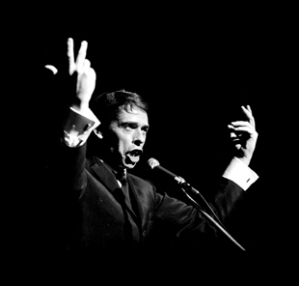 This is the second and final part of Tighten Up: The Story of Trojan Records, a BBC documentary narrated by Don Letts recalling the story of the influential record label that brought Jamaican music to the UK, and to the world.
This is the second and final part of Tighten Up: The Story of Trojan Records, a BBC documentary narrated by Don Letts recalling the story of the influential record label that brought Jamaican music to the UK, and to the world.
Part 1: A Tale of Two Islands
In the early 70s Trojan Records had became a huge independent label. To make reggae more accessible to the British audience, they would soften original Jamaican mixes by adding strings, turning them into hits. To further popularise reggae they released inexpensive compilations packed with successful singles: the now cult Tigthen Up series. Progressively, Jamaican music started to be recorded and produced in the UK. Reggae was finally getting mainstream recognition.
Success didn’t last though. Rival labels were gaining more and more interest from the black communities with their rawer sound, the skinhead culture was dying out and Trojan was missing out on important evolutions in reggae, such as the adoption of Rastafarian culture. In 1975 it went bankrupt.
But all wasn’t forgotten. The Trojan sound was later revived first by the punks who identified with the street culture and socially conscious lyrics, and then by the Two Tone movement with the skinhead revival.
Listen here:
Tighten Up: The Story of Trojan Records – Part 2: Going Mainstream



